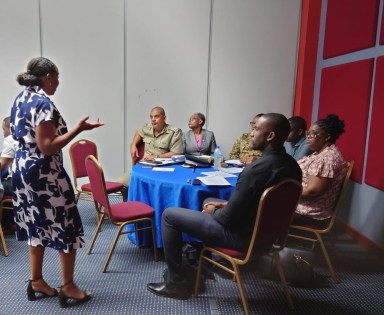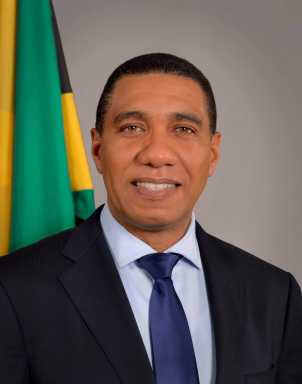Listeners:
Top listeners:
-
play_arrow
RadioJLR Just Press Play
Seeking to strengthen human rights-based, gender-sensitive policing in St. Lucia

The United Nations Office on Drugs and Crime (UNODC) says 20 officials involved in the management and administration of justice and citizen security in St. Lucia have participated in a two-day workshop aimed at strengthening human rights-based and gender-sensitive policing in St. Lucia.
UNODC said on Thursday that it organized and facilitated the August 14-15 workshop, dubbed “Enhance Equal Access to Justice for All in St. Lucia, with coordination support by the United Nations Resident Coordinator Office for Barbados & the Eastern Caribbean’s (UN RCO) satellite office in St. Lucia.
“This initiative is one of several interventions encapsulated in a consolidated offer by the United Nations to the Government following a development partners meeting organized by the United Nations Barbados and Eastern Caribbean Multi-Country Office in St. Lucia in October 2023,” UNODC said.
In alignment with the UNODC Strategy 2021-2025, the UNODC Strategic Vision for Latin America and the Caribbean 2022-2025, the Caribbean Multi-Country Sustainable Development Framework 2022- 2026, and the General Assembly resolution A/RES/78/227 on “Equal access to justice for all’’, UNODC said it aims to conduct a comprehensive assessment and programming initiative focused on human rights-based and gender-responsive policing in St. Lucia.
It said this intervention is designed to contributes to meeting the UN Sustainable Development Goals (SDG) 16.3, which promotes the rule of law at national and international levels and ensures equal access to justice for all.
Workshop participants engaged in group activityPhoto credit: UNODC
Anna Giudice, Team Lead of UNODC’s Access to Justice Team, under the Vienna-based Crime Prevention and Access to Justice Section, said that a set of recommendations will be developed, based on the workshop discussions, to inform further UNODC assistance to St. Lucia in the area of police reform.
“The police are under pressure to perform with demands for safety security and justice,” she said. “UNODC’s role is to support the police in executing their often-challenging duties.”
UNODC said the workshop furnished key insights to enhance the implementation of human rights-based and gender-sensitive police reform in St. Lucia.
“It aims to ensure police efficiency, effectiveness, fairness, inclusivity and humane treatment of marginalized and excluded communities—such as victims of violence, youth, migrants, persons with disabilities, and the poor—thus building and sustaining community trust, accountability, integrity, and transparency, ultimately promoting safety and justice for all, while contributing to a safe society and prevention and responses to crime,” it said.
Acting Permanent Secretary of the Ministry of National Security in St. Lucia, Sarah Dupre-Cotter, welcomed this initiative, stating: “We are immensely grateful for the assistance and efforts of the UNODC in organizing this gathering and trust that all participants will immerse themselves in the presented material and utilize their expertise and experience so that, at the end of the session, viable recommendations can be presented to the UNODC, to facilitate their efforts in obtaining the necessary assistance to assist our continued efforts at police reform and equitable access to justice in St. Lucia”.
In relating her perspectives on the workshop, Woman Police Constable (WPC) Rubinia Joseph expressed her preference for its interactive approach, which highlighted challenges, needs and actionable solutions in key areas, including human rights-based policing; gender-responsive policing; victim-centered policing and evidence-based policing.
Participants engaged in group activityPhoto credit: UNODC
“The intervention by UNODC is timely, well-placed and tailored to meet the needs of the Royal St. Lucia Police Force (RSLPF) during this transformative period geared towards police reform and modernization,” she said, expressing hope that the workshop discussions will positively contribute to enhancing citizen security, justice and rule of law in St. Lucia.
UNODC said worship participants included representatives from the Ministry of Nations Security, particularly the RSLPF; the Ministry of Home Affairs (Fire Department, Parole and the Bordelais Corrections Facility); the Eastern Caribbean Supreme Court. and the Attorney General’s Chambers.
Presentations were delivered by the UNODC and the Regional Security System (RSS), UNODC said.
Similar posts
© 2025. All Rights Reserved by Radio-JLR



Post comments (0)